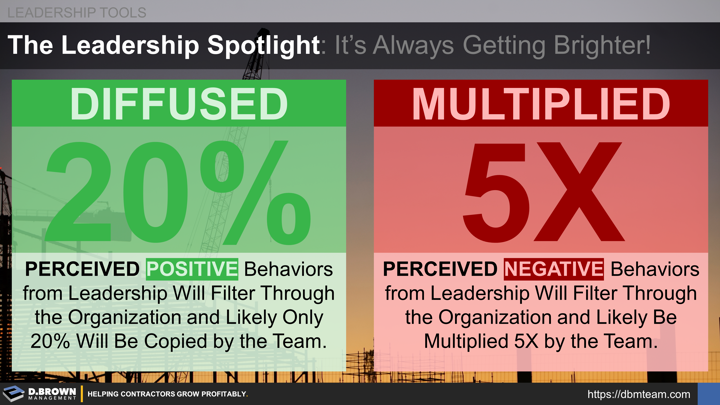All of your actions and perceived actions will be replicated throughout the organization. They will not be replicated in the way that you think. Rather, they will be weighted toward the negative, comfortable, or short-term reward behaviors. Make these assumptions as you act throughout the day:
- PERCEPTION: It isn’t just what leaders do and say, but what others perceive them doing and saying as they interpret things through their own lenses with limited information.
- 20% POSITIVE: Assume that only about 20% of your positive behaviors will get noticed and replicated.
- 5X NEGATIVE: Assume that anything you do that is remotely seen as negative, comfortable, or short-sighted will get replicated 5X over what you actually did.
Retired General Stanley McChrystal describes this in his autobiography, where an action as simple as rubbing his eyes in a daily video conference update would have people talking “What is wrong with the boss? Was it something I said?”
Learn more about how we are all mostly wired.

